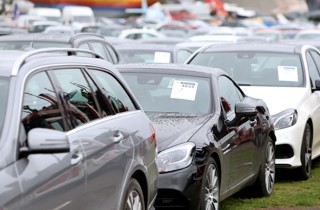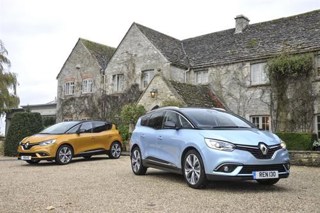Auto Trader has revealed that the average price of a car advertised on its used car retail platform reached an all-time record high of £12,967 in November.
Revealing the landmark figure in its monthly Retail Price Index report, it noted that the landmark figure had come at a time when the Finance and Leasing Association (FLA) had announced the value of used cars financed by dealers at the point of sale surged 14%, and volume up 8%.
Karolina Edwards-Smajda, Auto Trader’s director of commercial products, said: “At circa 35%, finance currently accounts for a relatively small proportion of purchases in the used car market.
“However, as the latest industry results highlight, as the average cost of used cars increase, the more vital finance is becoming in the second-hand buying journey.
 “With the average three-year new car cycle fuelling the market, finance enables consumers to buy younger, more desirable and crucially, more expensive second-hand cars.”
“With the average three-year new car cycle fuelling the market, finance enables consumers to buy younger, more desirable and crucially, more expensive second-hand cars.”
November’s record high was mirrored across the various fuel types tracked by the Index.
The average price of a used petrol vehicle last month was £11,202, the highest rate recorded, as was both the £20,828 average price for alternatively fuelled vehicles (AFVs) and the £19,978 for pure electric vehicles (EV).
The average sticker price for a used diesel was £14,630, which was just £73 less than October’s record high of £14,556.
Auto Trader’s monthly Retail Price Index also showed that the rate of growth has been steadily slowing across the board, however.
The average price of a used car recorded a year-on-year increase of 4% in November, which marks the lowest increase since August 2017.
Year-on-year (YoY) growth reached a peak of 7% in June, but has been slowing each subsequent month, Auto Trader said in its report.
 This reflects a similar trend seen across the fuel types, with diesel reaching a peak (6 per cent) in July 2018 but gradually slowing to 4% in November, whilst petrol’s rate of growth decelerated even more significantly, from 11% in December 2017, to just 4% last month.
This reflects a similar trend seen across the fuel types, with diesel reaching a peak (6 per cent) in July 2018 but gradually slowing to 4% in November, whilst petrol’s rate of growth decelerated even more significantly, from 11% in December 2017, to just 4% last month.
AFVs have also been gradually slowing since December, from 9% to 4%, Auto Trader said.
With various remarketing providers indicating continued competition for wholesale stock, Edwards-Smajda suggested that it was vital for car retailers to make consumers’ finance options transparent and easily understandable in an effort to maintain profit and volume growth.
She said: “Making the financing of used cars more competitive, accessible and easier to understand for buyers will be a crucial step in taking advantage of this opportunity. In an industry where there is increasing competition and complexity, it’s vital that retailers give themselves the very best chance of success; getting finance right will unquestionably be key to unlocking growth in the used car market in 2019.”


















Login to comment
Comments
No comments have been made yet.